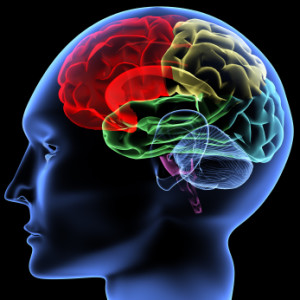 In 2014, ABC News reported that organizational-industrial psychology was America’s fastest-growing occupation. In general, however, it’s no secret that modern psychologists face a particularly difficult job market. Continuous, self-directed study and training are essential for standing out in this crowded field. Here are five classic books, new and old, that every psychologist should read for a well-rounded knowledge of the human mind:
In 2014, ABC News reported that organizational-industrial psychology was America’s fastest-growing occupation. In general, however, it’s no secret that modern psychologists face a particularly difficult job market. Continuous, self-directed study and training are essential for standing out in this crowded field. Here are five classic books, new and old, that every psychologist should read for a well-rounded knowledge of the human mind:
1. Social Psychology by Robert Brown
Written in a warmly engaging style, this earnest book achieved wide recognition in its field. Brown employs a wry, life-affirming tone as he summarizes important research and pioneers what psychologists would later call cognitive psychology. Besides exploring social psychology, Brown was an expert in psycholinguistics and child psychology, exemplifying the importance of diversified professional growth. A Harvard professor, Brown published “Social Psychology” in 1965 and released a completely rewritten, updated second edition in 1986. Although the newer edition has the advantage of drawing on newer research, Brown’s keen insights make both editions essential reading for all psychologists.
2. Learning, Memory And Conceptual Processes by Walter Kintsch
Published in 1970, this book was a key link between older psychology traditions and developing ideas. With abiding respect for his professional forebears, Kintsch summarizes and annotates the major developments in learning and memory research to date. After earning his psychology PhD at the University of Kansas, Kintsch came into his own as a Professor of Psychology and Neuroscience at the University of Colorado. Along with his later book “Comprehension,” Kintsch’s 1970 book fully demonstrates how older research, though perhaps incomplete, is crucial for understanding the most modern psychological breakthroughs.
3. The Social Animal by Elliot Aronson
This is another modern psychology classic that combines impeccable research with a well-developed, engaging prose style. Released in 1976, this informative book uses social psychology to illuminate the intricacies of human aggression, interpersonal love and human behavior in general. Though the principles described in this book are certainly useful for self-improvement, Aronson is far from a run-of-the-mill self-help author. Instead, this distinguished professor rigorously draws from peer-reviewed articles as he illuminates psychological truths. In a volume full of quotable lines, Aronson’s readers have cherished and remembered one quote in particular: “People who do crazy things are not necessarily crazy.”
4. Fixing My Gaze: A Scientist’s Journey into Seeing in Three Dimensions by Susan R. Barry
A more recent choice, this 2009 book looks at how our minds and bodies create the useful illusion of depth perception. Like all of the books mentioned here, Barry’s volume details how our minds and bodies work together seamlessly to fulfill our most basic human needs, like the need to see the world in three dimensions. Born without depth perception, Barry inspiring journey to full visual capacity captivated psychologists worldwide. Combining personal history with rigorous research, this modern classic is likely to endure.
5. Strangers To Ourselves: The Adaptive Unconscious by Timothy Wilson
This 2004 book was a landmark achievement for Wilson, an esteemed psychology professor with the University of Virginia. Wilson aptly demonstrates the overwhelming influence of the unconscious on human behavior. For example, Wilson shows how the unconscious acts as kind of immune system for the mind, filtering stimuli to protect psychological equilibrium. As Wilson writes, understanding exactly how the unconscious guides us can free us to create real, lasting change in our lives.
Though there are plenty of other great psychology books available, the works on this list stand apart with their multi-faceted insights. Each one of these books teaches sound, research-based principles that can help bring balance to the professional and personal lives of modern psychologists. Without doubt, these leading authors fully represent the boundless, exciting potential of psychology.




